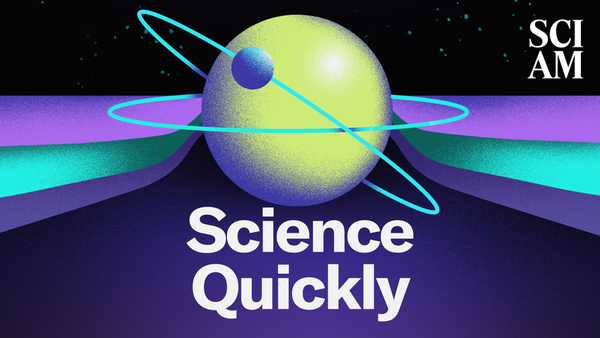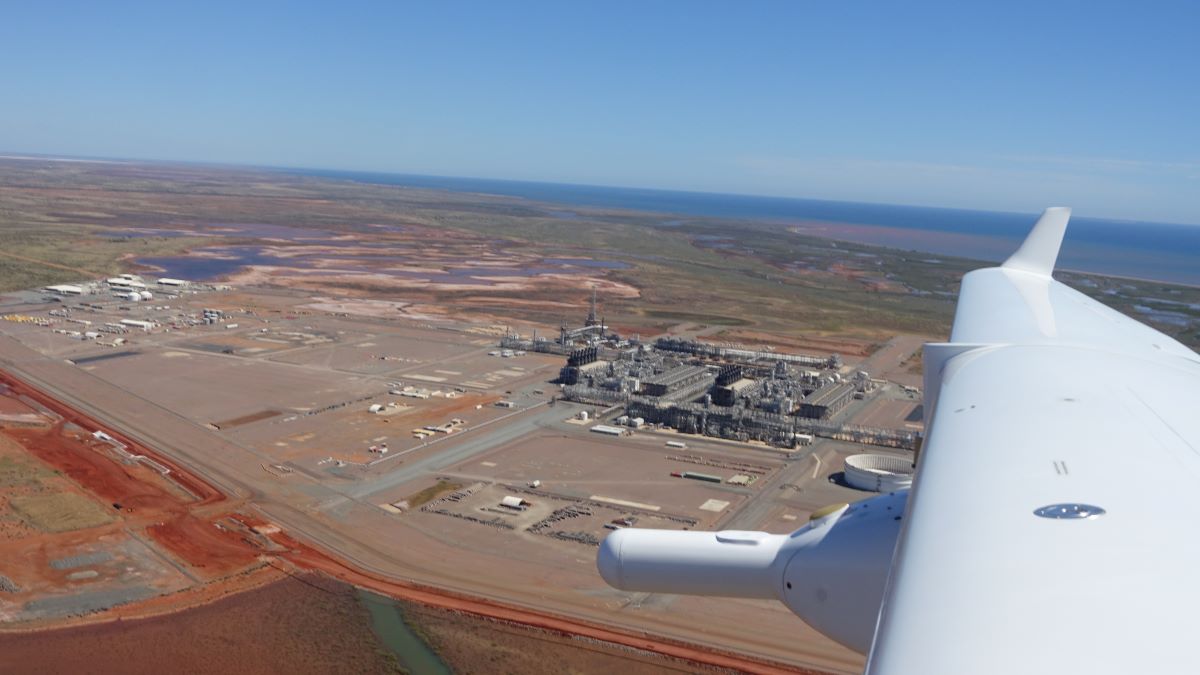Olympic Athletes Swim the Murky Seine, and Astronauts Are Stuck on the Space Station
We cover the science stories of the Olympics, concerns about artificial sweeteners and a new theory of how the pyramids were built in this week’s news roundup.
Anaissa Ruiz Tejada/Scientific American
Rachel Feltman: Happy Monday, listeners! This is Rachel Feltman, and you’re listening to Scientific American’s Science Quickly. Let’s kick off the week by catching up on the latest science news.
First, let’s check in on a couple of stories we’ve been following recently. A few weeks ago, SciAm’s own Allison Parshall joined us to explain how and why Paris was trying to make the Seine clean enough for Olympians to swim in. The river did indeed host individual triathlon swimmers for their event on July 31, but since then there’s been a lot of trash talk about the river’s bacteria levels. On August 4 Belgium’s Olympic committee said it was pulling its team from the mixed relay triathlon because one of its swimmers had become ill after competing in the Seine. While Belgium’s athlete Claire Michel did indeed get quite ill with gastrointestinal symptoms, she clarified on Instagram last week that she was sick with a virus, not an E. coli infection as many folks had speculated. But as Allison explained for us a few weeks ago, the safety of the Seine changes from day to day. Last week, swimmers had to skip a planned practice day due to high bacterial counts. When they got cleared to swim the following day, some swimmers used paddleboards so they could get a feel for the course without putting their heads below the water. To learn more about this massive ecological undertaking—and why Paris put such a big bet on an urban river—check out our episode from July 19.
Speaking of Olympics headlines: if you haven’t checked out our July 31 interview with journalist Rose Eveleth, you definitely should. It’s got loads of historical context and modern research to help you understand the recent controversies around sex testing and fairness in women’s boxing.
On supporting science journalism
If you’re enjoying this article, consider supporting our award-winning journalism by subscribing. By purchasing a subscription you are helping to ensure the future of impactful stories about the discoveries and ideas shaping our world today.
And here’s one more update on an old favorite: Butch Wilmore and Suni Williams are still definitely not stuck in space, according to NASA, but they’re also definitely not home yet. To refresh your memory, these two astronauts got to the International Space Station on June 6 and were only meant to stay for a couple of weeks. Issues with the Boeing Starliner craft they rode up on have delayed their return. Last week, NASA announced it wouldn’t be sending another crewed mission to the ISS until at least September 24. The SpaceX Crew-9 mission, which was meant to take four astronauts up to the ISS this coming weekend, can’t take off until the Starliner spacecraft heads home. The U.S. side of the ISS only has two docks, and SpaceX’s Crew Dragon Endeavour is already taking up the second spot. In other words, this is a pretty good indication that NASA is still feeling iffy on whether or not Butch and Suni should ride home in Starliner. NASA stressed that no decisions have been made at a press conference on Wednesday, which, yeah, I think we can all see that. But NASA did note that one potential back-up plan is to send them home with the members of the delayed Crew-9 mission. That mission is supposed to last for six months, which would push Butch and Suni’s return into 2025.
For the first time in almost 40 years, the Environmental Protection Agency has exercised its authority to immediately pull a pesticide from circulation. Last week the EPA issued an Emergency Order suspending the sale of products that contain dimethyl tetrachloroterephthalate, or DCPA, which is also marketed under the brand name Dacthal. The weed killer has been around since the 1950s, and the EPA has been investigating its impact on thyroid health for years. The EPA said in a statement that AMVAC Chemical Corporation, the sole manufacturer of DCPA, has repeatedly failed to deliver data that proves the pesticide’s safety, and that the EPA’s assessment suggests unacceptable risk. The weedkiller is especially harmful to fetal development, and it’s been banned in the European Union for more than a decade.
In other “Is it just me, or is there no such thing as healthy consumption under capitalism?” news, a study from the Cleveland Clinic suggests that the popular artificial sweetener erythritol could increase the risk of cardiovascular problems, including heart attacks and strokes. Erythritol is found naturally in some fruits and veggies, and our bodies actually produce a bit of it when we metabolize glucose. But that doesn’t mean the quantities found in sugar-free foods and beverages are harmless. The study, published last Thursday, showed that levels of the compound in the blood increased by more than 1,000 times over baseline levels when subjects consumed amounts comparable to those found in food products. The researchers also saw an increase in blood clot formation, which didn’t happen when subjects ate glucose instead. The same group from Cleveland Clinic recently raised similar concerns about another sugar alcohol called xylitol. The senior author of both studies noted that it might be healthier for folks to enjoy sugar-sweetened treats in moderation than to consume lots of sugar alcohols, especially if they’re already at risk of or diagnosed with heart or metabolic disease.
To wrap us up with some fun, albeit highly controversial news that will probably lead to one of those terrible alien history TV documentaries, a private research institute callled Paleotechnic is arguing that ancient Egyptians may have used a surprising tool to help build the pyramids: hydraulic lifts. A new paper from researchers at the company argues that the 4,700-year-old Pyramid of Djoser was constructed with the help of a sophisticated hydraulic freight elevator powered by a branch of the Nile. But it seems like this admittedly jazzy headline is pretty problematic: outside experts pointed out that there were no Egyptologists or archaeologists involved directly with the study, and people in those fields seem extremely skeptical. They noted that there would probably be some historical record of such an impressive device and that it would be kind of a stretch for the Nile to actually provide the waterpower needed to fire up such a massive lift. Tough but fair, guys. Tough but fair.
That’s all for this week’s news roundup. Tune in on Wednesday for a deeper dive into the latest science news. And you definitely don’t want to miss Friday’s episode. I’ll be chatting with Wendy Zukerman of Science Vs to hear all about her efforts to investigate one of science’s biggest research taboos: butt stuff.
If you’re enjoying the show, do us a favor and leave a rating and a review wherever you listen to podcasts. You can also send us questions, comments and suggestions for topics you’d like us to cover at ScienceQuickly@sciam.com.
Science Quickly is produced by me, Rachel Feltman, along with Fonda Mwangi, Kelso Harper, Madison Goldberg and Jeff DelViscio. Shayna Posses and Aaron Shattuck fact-check our show. Our theme music was composed by Dominic Smith. Subscribe to Scientific American for more up-to-date and in-depth science news.
For Scientific American, this is Rachel Feltman. Have a great week!





















Discussion about this post